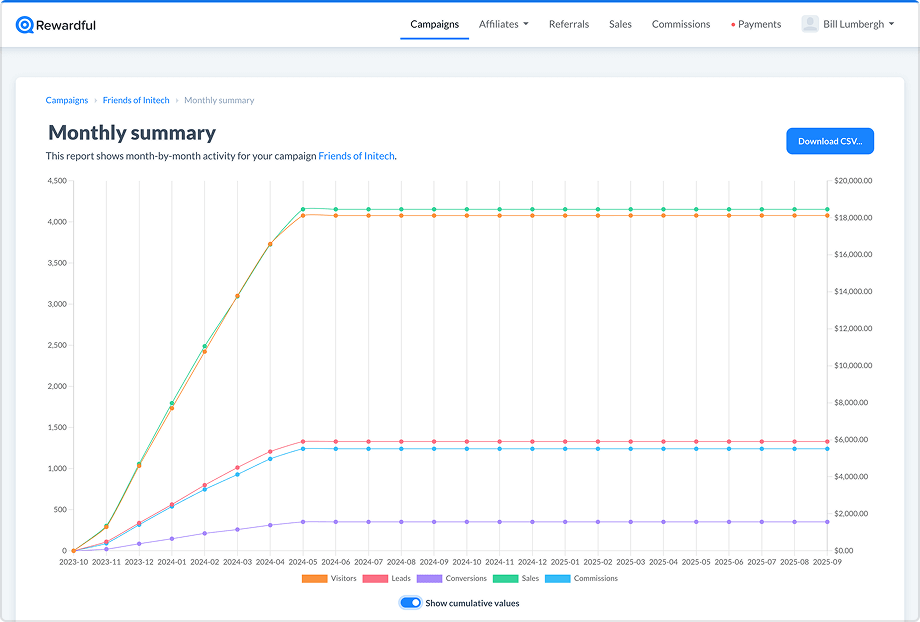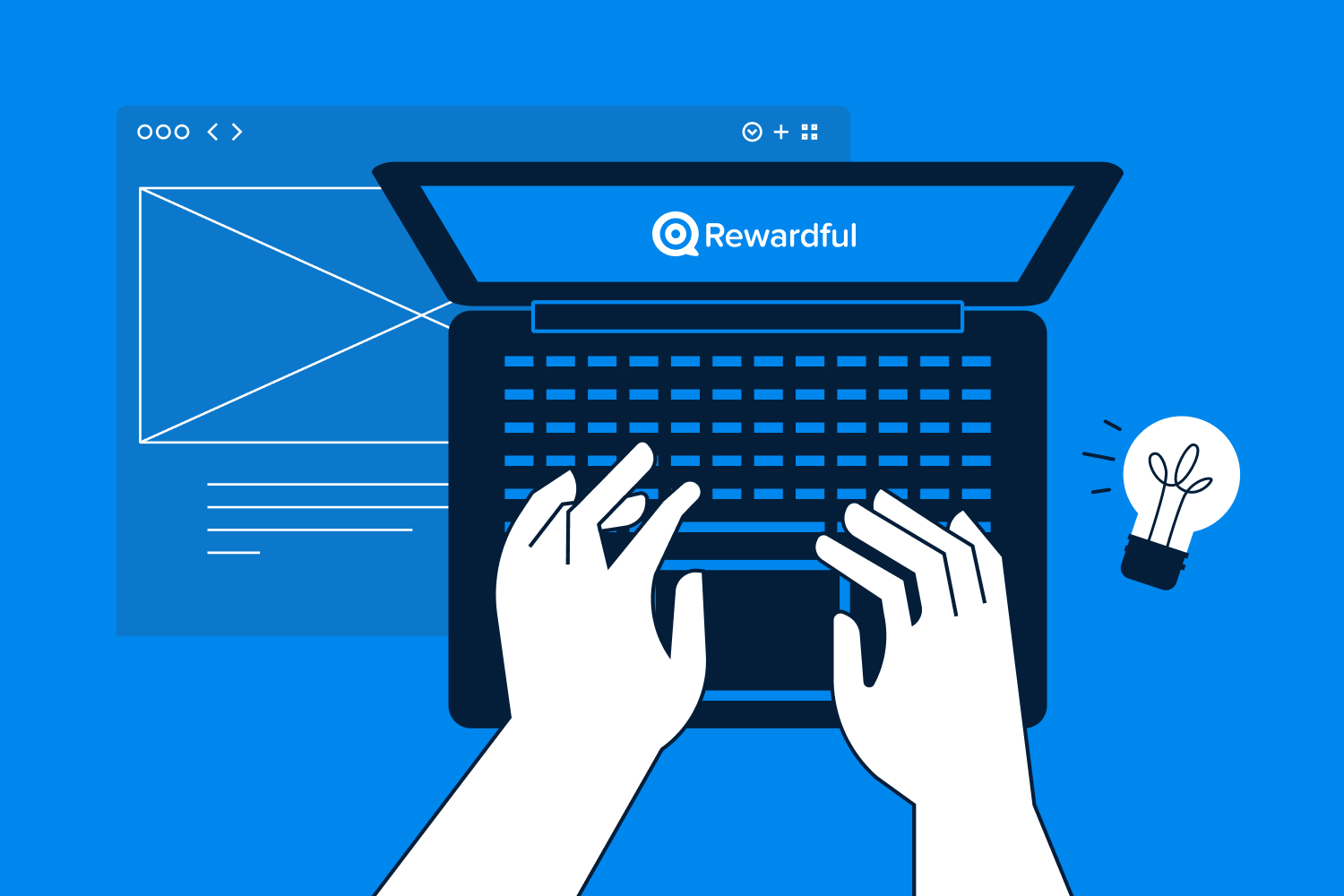As an affiliate marketing manager, you spend your days recruiting partners, setting commission structures, and optimizing performance for others. But what if those same skills could start working for you, too?
In this guide, we’ll explore five proven ways to earn extra money with your skills.
5 Best Side Hustles for Affiliate Managers
From consulting to content creation, here are some of the most practical affiliate income ideas for turning your knowledge into a side hustle.
1. Provide Affiliate Marketing Consulting Services
Most small businesses know affiliate marketing can drive growth, but few understand how to do it well. They underestimate the complexity, make costly mistakes, and often end up seeking help from experts.
But you’ve already solved all the common affiliate marketing problems in-house. That gives you something founders can’t buy off the shelf: practical, field-tested expertise.
What You Can Offer
Package your consulting into clear, outcome-driven services:
- Program setup and audits: help founders choose the right affiliate software, configure tracking properly, and ensure compliance.
- Commission and payout strategy: design tiers, bonuses, and payout structures that motivate affiliates without blowing the budget.
- Recruitment playbooks: find and pitch affiliates who actually convert instead of wasting time on volume. Teach funders how to build a network of quality affiliate partners.
- Ongoing optimization: detect self-referrals, double down on top performers, refine campaigns, and keep ROI on track.
Keeping these buckets clear helps you sell your services faster and positions you as a strategist rather than just a tactical helper.
How to Become an Affiliate Marketing Consultant
- Pick a niche: focus makes you more marketable. For example, indie SaaS founders, ecommerce stores, and DTC brands are often underserved.
- Package your offer: start with simple, predictable pricing models.
- Flat fee for Program Setup and 30 Days of Monitoring.
- Ongoing retainer for optimization and growth.
- Find clients where they hang out: go where your potential clients are already asking for help.
- Communities: Indie Hackers, SaaS Slack groups, or DTC Facebook groups.
- Subreddits: like r/indiehackers and r/affiliatemarketing.
- LinkedIn groups: partnerships and growth-focused spaces.
- Position yourself with authority: publish tips, frameworks, or case studies on LinkedIn. Even one well-written post showcasing your approach to affiliate growth can start conversations and land clients.
Real-World Examples
Indie Hackers built a community of indie SaaS founders who regularly post threads looking for guidance on setting up affiliate programs. Then, experienced consultants step in to offer setup services, optimization strategies, and recruitment playbooks.
Platforms like GrowthMentor also exist to match SaaS founders with partnership coaches specializing in affiliate marketing: proof that there’s a market willing to pay for your expertise.
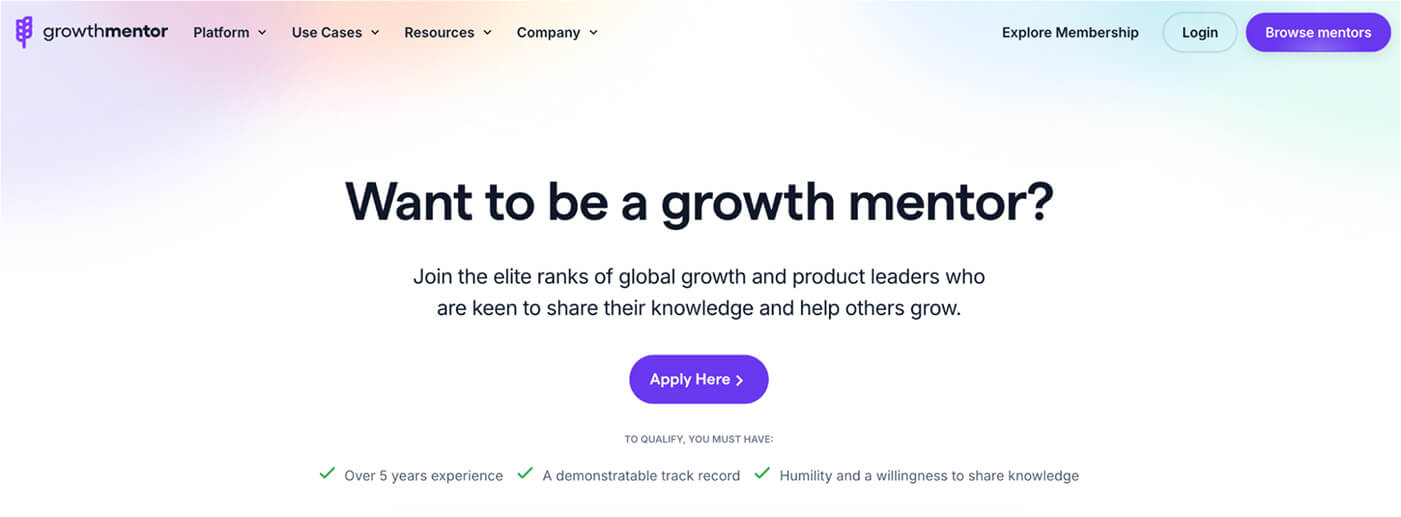
2. Create Educational Products
Affiliate marketing looks simple from the outside: recruit partners, pay commissions, track sales. But anyone who’s managed a program knows the reality is more complex, and issues like low-quality affiliates, compliance issues, underperforming campaigns, and wasted ad spend tend to pop up.
That gap between perception and reality is exactly why educational products work so well. People want practical, mid-level resources that solve real problems, and you already have the insights they need.
What You Could Build
Turn your experience into digital products people will happily pay for:
- Workshops: host live Zoom sessions teaching SaaS founders or ecommerce brands how to recruit their first affiliates or set up their programs properly.
- Courses: package your process into a structured Affiliate Program Starter Kit that walks someone from zero to launch. Keep it focused; a short, actionable course often outperforms bloated ones.
- Guides and templates: create plug-and-play commission calculators, outreach templates, or recruitment playbooks that save founders hours of guesswork.
How to Become an Educational Affiliate Marketing Product Creator
- Choose your audience carefully: are you targeting SaaS founders, DTC ecommerce stores, or marketing freelancers? The tighter the focus, the easier it is to stand out.
- Start small and validate demand: test the waters with a 60–90 minute paid workshop or a downloadable template before investing time in a full course. Use attendee feedback to refine your offer.
- Pick a no-friction platform: sell via Gumroad or Podia, or try creating Notion templates; these require minimal setup and handle payments seamlessly.
- Price with confidence: live workshops typically range from $50–$150 per seat, while smaller templates can sell for $15–$40. Start lean, iterate fast, and scale.
Real-World Examples
Justin Welsh built a seven-figure business selling short, structured playbooks for professionals looking to scale their expertise.
Similarly, Wes Kao, co-founder of Maven, proved the demand for cohort-based workshops, where professionals pay a premium to learn targeted skills.
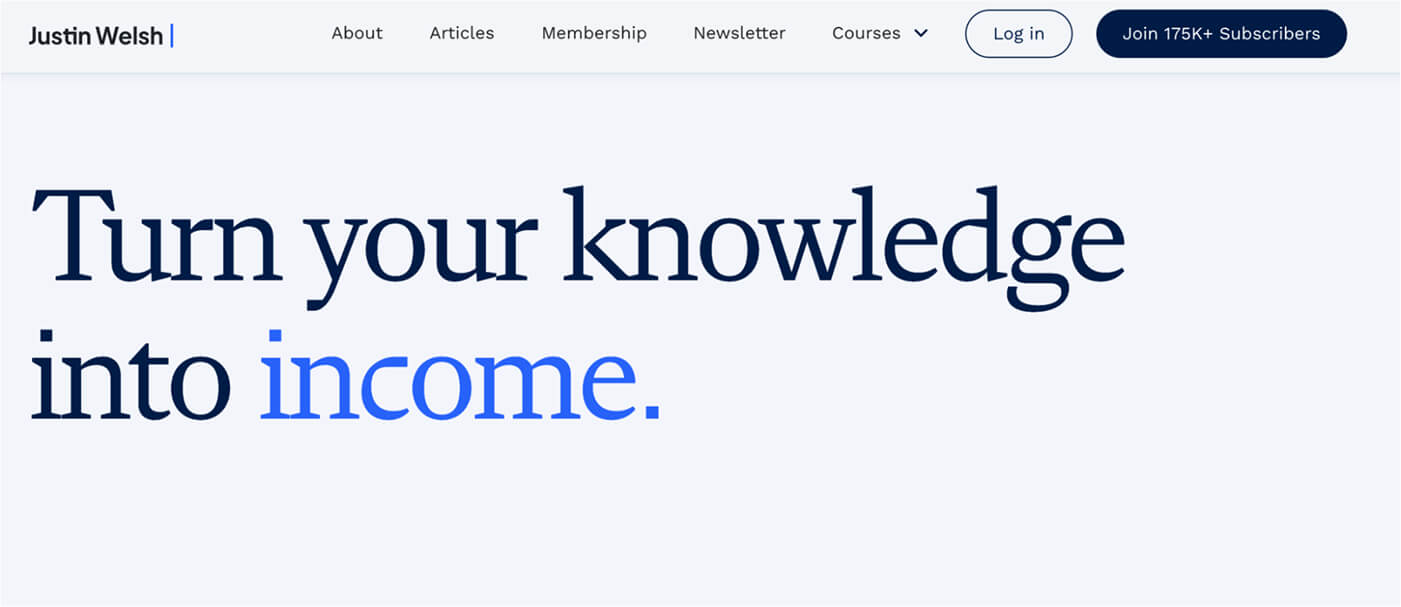
3. Launch Affiliate Marketing Coaching and Mentorship Programs
Not everyone wants to hire a full-blown consultant or buy a pre-recorded course. Many junior affiliate managers, aspiring marketers, or SaaS founders prefer simple guidance, and that’s where coaching and mentorship come in.
Because affiliate management is still a niche role, there are only a few structured training paths and even fewer mentors who’ve actually scaled programs successfully. If you’ve done it, your hard-earned insights are valuable, and people are willing to pay for direct access to your expertise.
What Coaching Can Look Like
Coaching doesn’t have to be complex or time-intensive. You can structure it around your availability and strengths:
- One-to-one calls: offer personalized sessions to junior affiliate managers or founders who want hands-on guidance.
- Small group mentorship: host weekly calls with a handful of SaaS founders or marketers to teach them affiliate best practices together.
- Career coaching: help marketers pivot into partnerships or affiliate management roles by sharing frameworks, pitfalls, and practical advice.
How to Become an Affiliate Marketing Coach
- Define your coaching niche: are you helping SaaS founders launch programs? Mentoring junior managers? Teaching marketers how to transition into affiliate roles? Specificity sells.
- Create a simple offer: package your coaching into something clear and easy to buy.
- 4-week mentorship with weekly calls and Slack access.
- One-hour strategy session for troubleshooting affiliate programs.
- Market your services where your audience lives: post tips and micro-frameworks on LinkedIn, join affiliate-focused Slack communities, or reach out directly to people engaging with your content.
Pitfalls to Avoid
Keep your affiliate marketing coaching business sustainable by setting expectations upfront:
- Set time limits: without boundaries, coaching can spill into evenings and weekends. Define fixed call slots and limit async access.
- Stay niche: people don’t pay for generic marketing advice, they want affiliate-specific expertise like commission modeling, recruitment strategies, or reporting insights.
- Price for value: underpricing signals inexperience. Coaching isn’t just advice; it’s access to your experience. Price accordingly.
Real-World Examples
Communities like Superpath (for content marketers) and RevGenius (for revenue leaders) show how professionals are willing to pay for direct access to experienced mentors. Affiliate managers can carve out a similar niche, offering structured guidance to junior marketers or founders who want to shortcut their learning curve.
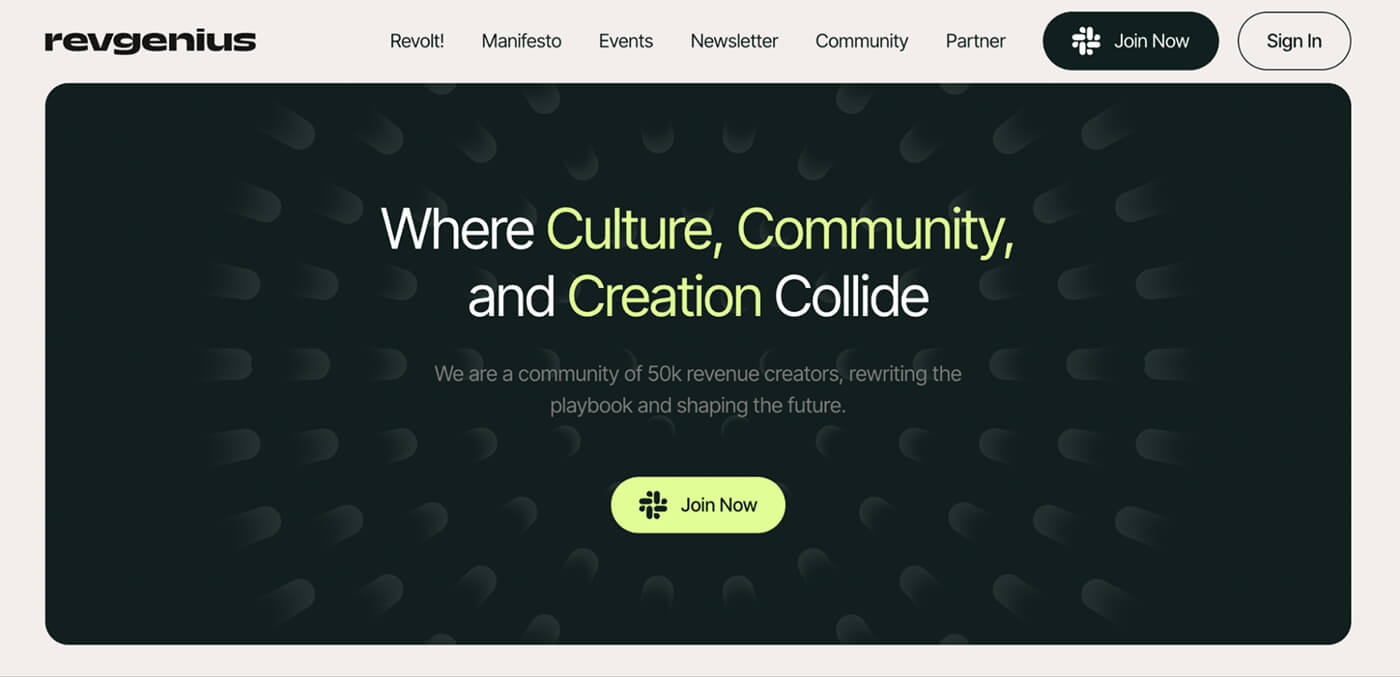
4. Try Affiliate Content Creation and Writing
As an affiliate manager, you know what kind of content actually drives clicks and conversions—from offer breakdowns to campaign case studies.
That makes writing one of the most natural (and scalable) side hustles for you. Unlike generic freelancers, you can create content that speaks directly to performance marketing and affiliate growth, and brands pay a premium for that insider perspective.
What Content Creation Can Look Like
There are multiple ways to turn your expertise into written (or recorded) income streams:
- Freelance writing for brands: write blog posts, playbooks, or case studies for SaaS or ecommerce companies running affiliate programs. These companies constantly need content but lack in-house affiliate expertise.
- Thought leadership publishing: share guides, frameworks, and LinkedIn content to build your personal brand. Over time, this attracts consulting gigs, coaching clients, and partnerships.
- Affiliate-driven content: using your own affiliate program promotion strategies, launch a niche blog, newsletter, or YouTube channel where you review tools, explain affiliate mechanics, and monetize through affiliate links.
How to Become a Niche Affiliate Program Writer
- Decide on your angle: will you freelance, ghostwrite for executives, or build your own media property? Start with one clear focus.
- Build a simple portfolio: even 2–3 strong articles or LinkedIn posts can prove credibility. A case study from your current role (with anonymized data) is often enough to show value.
- Find where demand exists:
- SaaS companies often outsource to freelancers, so check job boards, LinkedIn posts, and marketplaces.
- Affiliate networks and tools (like Impact or PartnerStack) commission content regularly.
- For independent projects, start small: 3–5 high-quality articles or a curated Substack newsletter.
- Price realistically: industry blogs typically pay $200–$500 per post, depending on length and depth. Ghostwriting for executives can command higher fees, sometimes $1,000+ per piece if you position yourself well.
Real-World Examples
Publications like HubSpot and Shopify’s blog often commission freelancers to write in-depth content about growth and partnerships. On the independent side, creators such as Glen Allsopp (Detailed.com) have built authority and income streams by publishing highly specialized marketing content.
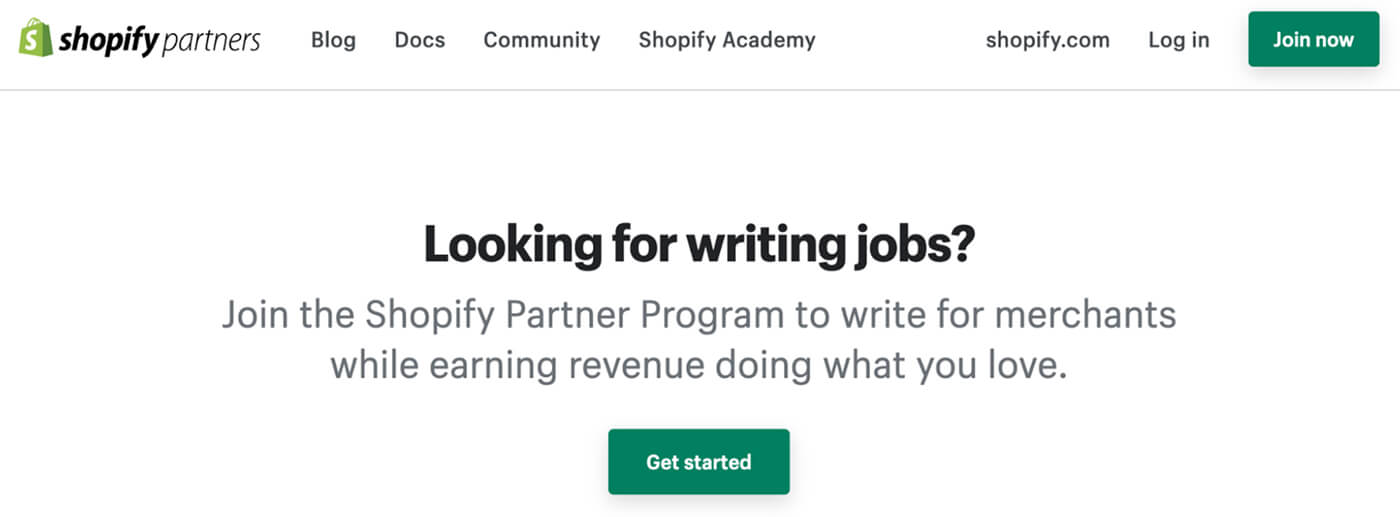
5. Become an Affiliate and Promote SaaS Tools
Here’s the irony: most affiliate managers spend their careers helping others grow affiliate programs, but many never take advantage of the opportunity themselves. That’s a missed chance, because you already know how to pick high-converting offers, build audiences, and track ROI.
In other words, your knowledge gives you an unfair advantage.
Instead of only applying that knowledge to your employer’s program, you can use it to build your own portfolio of affiliate-driven projects—and generate recurring income long after the initial setup.
What This Could Look Like
- Niche content site: launch a simple blog or microsite around a topic you know well (SaaS tools, ecommerce strategies, or even personal hobbies) and monetize with affiliate links.
- Affiliate newsletter: curate weekly product roundups or actionable tips for a specific audience. Even a small, loyal list can generate steady commissions.
- Video reviews and tutorials: short, authentic YouTube or TikTok reviews for products you already use can build trust quickly and convert at higher rates.
How to Get Started
- Pick a lane: start with niches where you already have expertise, like affiliate marketing software, general SaaS tools, ecommerce platforms, or lifestyle products you personally recommend.
- Choose 1–2 affiliate programs: look for programs with high recurring commissions and a strong reputation. You can start by joining programs that pay ongoing commissions when you recommend affiliate software you already know and trust.
- Launch something small: don’t overcomplicate it. Start with a Substack newsletter, a Notion playbook with affiliate links, or 3–5 high-quality blog posts.
- Track and reinvest: use the same playbook you run at work. Monitor conversions, double down on what performs, and scale from there.
Real-World Examples
SaaS affiliate managers often begin with tools they trust. With Friends of Rewardful, that can quickly turn into meaningful side income: 10 referrals to Rewardful’s Growth plan equals nearly $250 in monthly recurring commissions. For professionals who already understand SaaS growth, it’s one of the simplest ways to use your expertise.
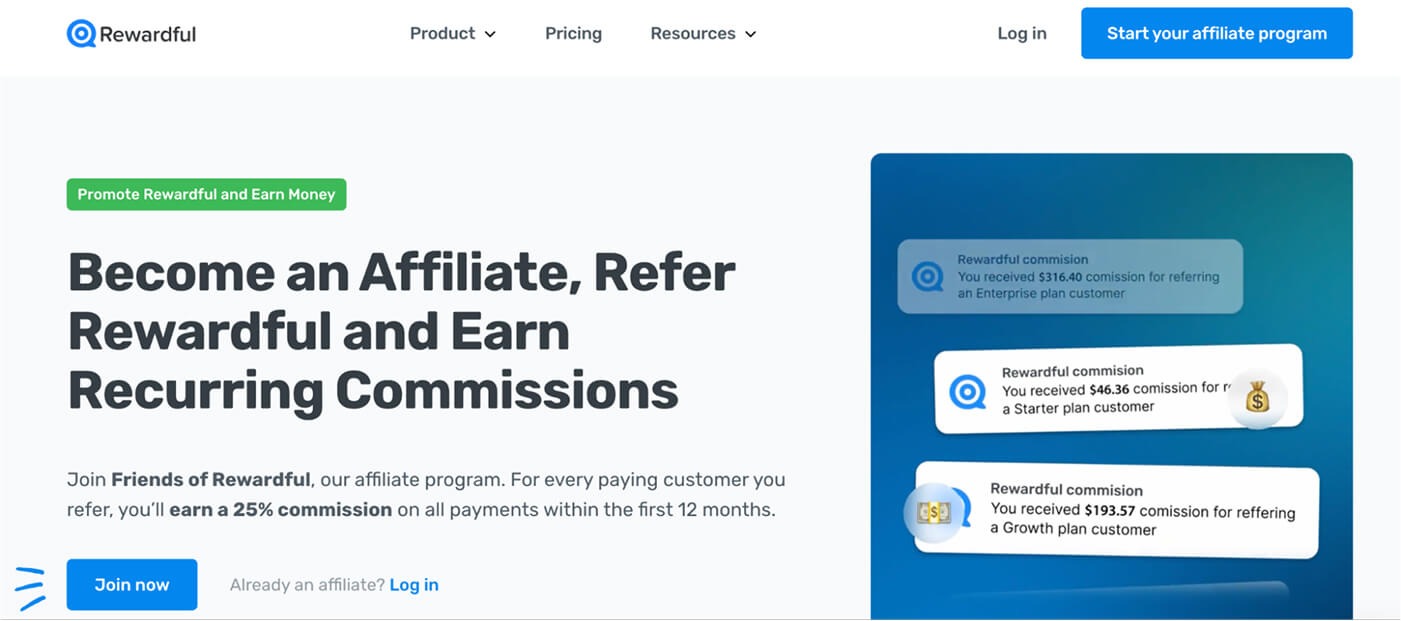
Turn Your Affiliate Expertise Into Extra Income Today
As an affiliate manager, you already see what others can’t: what converts, which strategies scale, and how small tweaks can unlock big results. That knowledge is more than just a job skill. It’s a lever for building your own income streams.
The key isn’t dreaming up something new; it’s putting your skills to work. Whether that means consulting, teaching, or launching affiliate projects of your own, the real value lies in starting.
And if you want the lowest-friction way to begin? Join a program that speaks your language. With Friends of Rewardful, you’re not just another affiliate, but promoting software you already understand, with recurring commissions built in. It’s the kind of side hustle that compounds quietly in the background while you keep building.
You already help companies grow. Apply to become a Rewardful affiliate today and let those same skills grow something for you.
[optional]:
Entrepreneurs like Damon Chen, founder of multiple SaaS products, use Rewardful’s program to generate meaningful side income with payouts on their way to scaling past $1,000/month.
Learn more about Rewardful’s affiliate program.
Affiliate Income Ideas: Frequently Asked Questions
Before you dive in, here are some common questions about earning extra income as an affiliate manager and how the Friends of Rewardful program works.
1. What Are the Best Affiliate Income Ideas for Managers?
The best side hustles for affiliate managers build directly on skills you already use every day. Popular affiliate income ideas include consulting for SaaS or ecommerce brands, creating educational workshops, offering one-to-one coaching, producing content for companies or your own channels, and promoting SaaS tools for recurring commissions.
2. How Can Affiliate Managers Make Extra Income With Friends of Rewardful?
Friends of Rewardful is an affiliate program that pays 25% recurring commissions for 12 months on every customer you refer. As an affiliate manager, you already understand program promotion strategies, which means you can earn side income by recommending Rewardful to SaaS founders, digital creators, and marketers who need affiliate management software.
3. How Much Can I Earn as a Rewardful Affiliate?
Earnings scale with your referrals. For example:
- 10 referrals to Rewardful’s Growth plan = $247.50 per month.
- 25 referrals = $618.75 per month.
- 100 referrals = $2,475 per month.
Because commissions recur for 12 months, your side income can grow steadily over time.
4. Who Can Join the Friends of Rewardful Program?
Friends of Rewardful is open to affiliate managers, consultants, agencies, content creators, and educators. You're a perfect fit if you work with SaaS, tech, or AI businesses or create content around affiliate income ideas, growth, or marketing. The only restriction is that self-referrals are not allowed.
5. How Do I Get Started With Friends of Rewardful?
Joining takes just three steps:
- Apply through the Friends of Rewardful sign-up form.
- Share your personal affiliate link with your audience, colleagues, or clients.
- Earn recurring commissions: 25% of every referred customer’s payments for 12 months.
It only takes a few minutes to join, and you can start promoting right away.



